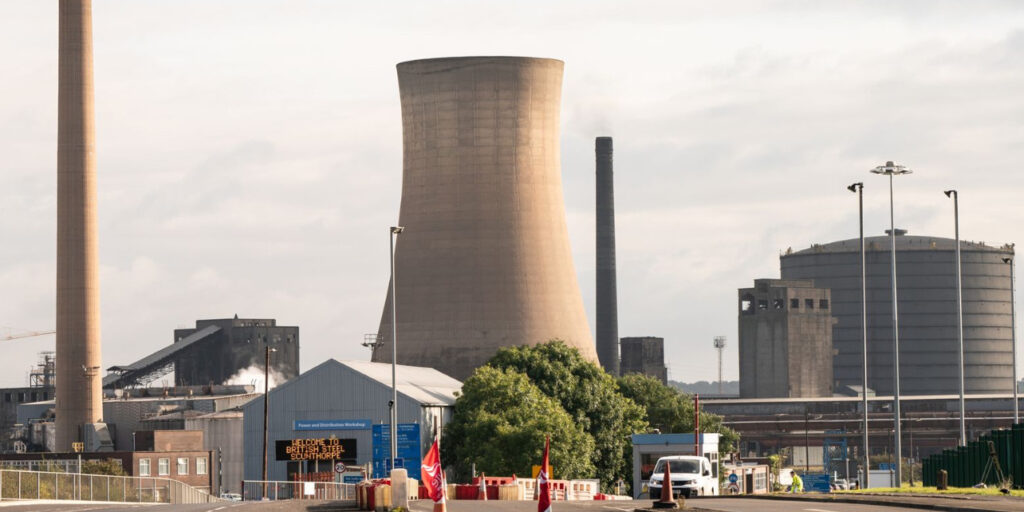Britain’s second-largest steelmaker, British Steel, is initiating a consultation process that could culminate in the shutdown of its two blast furnaces at Scunthorpe, potentially resulting in significant job losses.
This development puts additional strain on the government to enhance its financial support offer to the firm.
Sky News reports that on Thursday morning, British Steel engaged in critical discussions with trade unions regarding a redundancy plan that may see between 2,000 and 2,500 workers laid off from a total workforce of 3,500.
According to a union representative, key meetings were held on Thursday morning, with a forthcoming public announcement expected to detail the accelerated closure of the Scunthorpe site’s two blast furnaces.
The discussions pertain to the potential cessation of operations at the blast furnaces, downsizing steelmaking activities, and reducing the capacity of the steel rolling mills in Scunthorpe.
The initiation of this redundancy consultation occurs amidst a deadlock between the Jingye Group, the Chinese owners of British Steel, and the UK government regarding a subsidy package designed to support the company’s shift towards more sustainable steel production methods.
Industry Minister Sarah Jones informed Parliament that negotiations were ongoing, with an urgent query anticipated to be addressed in the House of Commons later that Thursday.
The proposed £500 million aid package is intended to facilitate the Scunthorpe-based firm’s transition to environmentally friendly steel production, following extensive negotiations aimed at securing the future of the UK’s second-largest steel producer.
This funding is on par with the amount allocated to the larger Tata Steel as part of a £1.25 billion package agreed upon last year.
Sources from Whitehall indicate that Jingye’s business strategy involves fewer job reductions if the company transitions to electric arc furnaces, with the job cuts spread over an extended timeframe.
Nevertheless, Jingye contends that such a transition would require a more substantial government financial contribution.


